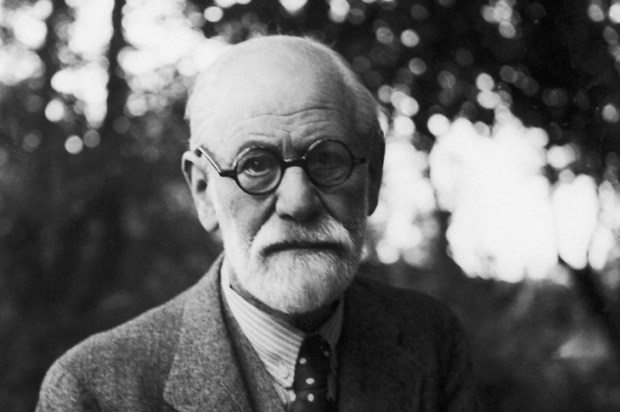Despite the term hysterical being criticised as having a sexist history and connotation, it is difficult to describe the reaction to Bettina Arndt’s Australia Day honours as anything but. The complaints accusing Arndt of supposedly sympathising with a paedophile and other such alleged misdemeanours are just a smokescreen for her real crime – betraying the feminist cause by prosecuting problems faced by men and boys.
The heat around the domestic violence debate is a proxy for the gendered prejudice underlying a half-century of progressivism.
Such hysteria would not be necessary if the movement and its supporters felt that they were on solid ground. The argument of hardline feminists that domestic violence is predicated upon the nebulous concept of patriarchy and innate male misogyny is a bald-faced lie. This lie keeps getting propagated and supported at the highest levels despite clear evidence for the contrary.
Domestic violence is closely tied to social disadvantage more generally, with thirty times the rates in Aboriginal communities for example. Clinically, perpetrators are woefully inarticulate, have rigid personalities prone to paranoia and have great difficulty tolerating any kind of frustration. Substance abuse is also often present. All this was clearly highlighted by an Australian Institute of Criminology paper last year: ‘There is growing recognition that domestic violence offending is concentrated among a relatively small group of offenders or couples,’ the AIC found.
A 2016 study cited by the paper ‘found that a very small minority of repeat offenders (two per cent) were responsible for half of all harm (50 per cent)’ and another 2017 Northern Territory study ‘found that eight per cent of couples accounted for 27 per cent of the harm associated with domestic violence’.
All male species of mammals are the most violent in their peak mating years. Humans are civilised and all kinds of violence, including domestic, are less common than they have ever been, but the violence that does occur is overwhelmingly against other men.
But healthy socialisation and the codifying of appropriate behaviours works with the vast majority of the population. This is why there is such a strong class component with regards to domestic violence. It is linked to a whole suite of other markers of disadvantage.
Feminists are correct that while studies show up to a third of domestic violence victims are male, clinically such cases are rare. When they do arise female perpetrators are either acting in self-defence or suffer what is known as borderline personality disorder-types that are especially sensitive to feeling rejected, criticised or abandoned. Domestic violence in same- sex relationships, often understated in such debates, is often related to such personality disorders.
The strong mental health component is being given voice by the new federal member for Reid, psychologist Fiona Martin. While it has flown under the radar, in both her maiden speech and public statements since, she has outlined the case for a stronger, evidence-based focus towards domestic violence. This may hint at a potential shift in government policy down the track.
The area where the nebulous notion of patriarchy in terms of ingrained, outdated male attitudes is relevant is among ethnic communities. My colleague Manjula O’Connor for example has highlighted such issues in cases of dowry abuse within the Indian community. Men in this group can feel threatened from the rapid changes in female roles experienced through migration, among both their wives and daughters.
Radical feminism depends upon a belief that the domestic sphere of a heterosexual household remains a key source of male domination, controlling female sexuality and labour. This is somehow fused with the male harshness of the market economy.
The significance of the term ‘deplorables’ used by Hillary Clinton to stigmatise Trump’s supporters is that it is a pointer to a half-century of gendered prejudice that progressivism is founded upon. While the justification was to right a sense of historical injustice, the project has shifted well beyond equality, as Arndt stated in interviews since her award.
Hence the sidelining of the working-class male and the rise of terms like ‘toxic’ to describe what are often ordinary male behaviours such as rough play or physicality. Male sexuality is seen as innately predatory.
ALP thinker Nick Dyrenfurth’s important book Getting the Blues about the future of the Labor party recommends quotas for working-class candidates. The fact such a suggestion was met with howls of abuse from Guardian writers such as Jason Wilson indicates how stigmatisation of ordinary males is a major contributor to the repeated failure of centre-left parties.
Such social groups are even more exposed given the decline of manufacturing and physical labour in modern service economies like Australia.
The rise of Trump and now ‘bonking Borish’ Johnson are all humiliations for the feminist cause. Such figures epitomise the male brute having taken charge of the most significant leadership positions in the world.
Other key losses for the radical feminist cause in recent years include the sidelining of its most rabid public voice, Clementine Ford. Ford was let go by Nine newspapers after repeatedly engaging in vile Twitter abuse. Ford was the premier attack dog taking down enemies of the feminist cause. Her rabid, uncouth nature was an affront to established feminists at the ABC, but she was regularly supported via retweets and airtime. Even though she continues her tirades on the Channel Ten site, her influence is much diluted.
The shutting down of White Ribbon was also a setback of sorts. I was an ambassador for White Ribbon and found myself under attack when I wrote about male identity and roles being undermined from rapid social change.
The cause of White Ribbon in terms of men helping to model good behaviour for other men was worthwhile, but hardline feminists would never accept men being at the table without utter compliance and passivity.
While we can all understand the heated nature of the debates around domestic violence, the issue is a proxy for a bigger battle, one about whether creating a better society depends upon expunging traditional masculinity from the public sphere.
Got something to add? Join the discussion and comment below.
Get 10 issues for just $10
Subscribe to The Spectator Australia today for the next 10 magazine issues, plus full online access, for just $10.
You might disagree with half of it, but you’ll enjoy reading all of it. Try your first month for free, then just $2 a week for the remainder of your first year.














Comments
Don't miss out
Join the conversation with other Spectator Australia readers. Subscribe to leave a comment.
SUBSCRIBEAlready a subscriber? Log in